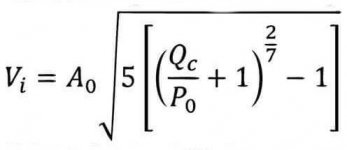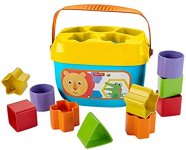You are using an out of date browser. It may not display this or other websites correctly.
You should upgrade or use an alternative browser.
You should upgrade or use an alternative browser.
How good must you be in math for artillery?
- Thread starter Big_Al
- Start date
- Reaction score
- 1,512
- Points
- 1,260
Big_Al said:Was wondering if someone can give me an idea of mathematical skills (trigonometry, etc.) needed for artillery NCM.
For reference to the discussion,
What math course would be better for Artillery?
https://army.ca/forums/threads/116935.0
FJAG said:As to your question on math, the fundamentals of trigonometry can't hurt as artillery is 99% trigonometry.
- Reaction score
- 18,777
- Points
- 1,280
ModlrMike said:If you know what this is, you're in.
Yes. V1 is across the street from A0's door, while his family is inside the house.
What's not to understand?
- Reaction score
- 1,512
- Points
- 1,260
Big_Al said:Ok. Thanks
Guess ill look into another trade
You are welcome. Good luck.
- Reaction score
- 1,721
- Points
- 1,090
Colin Parkinson
Army.ca Myth
- Reaction score
- 11,930
- Points
- 1,160
I sorry but this seems to remind me of most CP's https://www.youtube.com/watch?v=ashgP4YMdJw
Now that the trade goes into streams, those who are not particularly comfortable within even simple math will stay away from the Command Post, but even in the other streams you'll need to know a bit of basic math
That having been said, the most you'll need to learn is what I'd call "grocery math" as an NCM, not very complex stuff.
You know, fractions, adding decimals and integers. Something you've already been doing I'm sure, things like:
- which is bigger, 3/4 piece of pie or a 2/3?
- an item cost 3.75 and another thing 1.65, you've got 5 in your wallet and they only take cash, can you afford it?
Survey is mentioned above, but even the basics of solving by trig are taught to you, you don't need to bring it.
I spent a long time in the artillery, a good chunk of it at the School teaching and developing lesson plans including the manual methods of gunnery. I've taught people that were dumb as posts and they still got it, and that was just the officers! ;D
That having been said, the most you'll need to learn is what I'd call "grocery math" as an NCM, not very complex stuff.
You know, fractions, adding decimals and integers. Something you've already been doing I'm sure, things like:
- which is bigger, 3/4 piece of pie or a 2/3?
- an item cost 3.75 and another thing 1.65, you've got 5 in your wallet and they only take cash, can you afford it?
Survey is mentioned above, but even the basics of solving by trig are taught to you, you don't need to bring it.
I spent a long time in the artillery, a good chunk of it at the School teaching and developing lesson plans including the manual methods of gunnery. I've taught people that were dumb as posts and they still got it, and that was just the officers! ;D
I am a dumb-as-a-post officer (56 in Grade 12 math, no big deal) and can testify that practice and putting on your big-boy or girl pants and asking for extra help if required is all you need to succeed. CP Tech is often paired with Recce Tech during Regimental School; my advice is to take every course you can, as being able to jump streams will allow you to progress as much or as little as you want. If you make it to BSM you'll mystically be expected to at least have a vague idea of what everyone else does. Don't paint yourself into a corner by deciding you don't have what it takes before you start.
- Reaction score
- 9,944
- Points
- 1,360
Petard said:Now that the trade goes into streams, those who are not particularly comfortable within even simple math will stay away from the Command Post, but even in the other streams you'll need to know a bit of basic math
That having been said, the most you'll need to learn is what I'd call "grocery math" as an NCM, not very complex stuff.
You know, fractions, adding decimals and integers. Something you've already been doing I'm sure, things like:
- which is bigger, 3/4 piece of pie or a 2/3?
- an item cost 3.75 and another thing 1.65, you've got 5 in your wallet and they only take cash, can you afford it?
Survey is mentioned above, but even the basics of solving by trig are taught to you, you don't need to bring it.
I spent a long time in the artillery, a good chunk of it at the School teaching and developing lesson plans including the manual methods of gunnery. I've taught people that were dumb as posts and they still got it, and that was just the officers! ;D
Reminds me of NWO training.
Instructor: A Radian of a circle is 60 degrees
Keen NWO who used to be an Engineer: No! A Radian of a circle is 57.2958 degrees!
Instructor: yah but that's too hard to multiply/divide so we will just say it's 60 degrees. It's all just hocus pocus anyways!
- Reaction score
- 2,479
- Points
- 1,190
Humphrey Bogart said:Reminds me of NWO training.
Instructor: A Radian of a circle is 60 degrees
Keen NWO who used to be an Engineer: No! A Radian of a circle is 57.2958 degrees!
Instructor: yah but that's too hard to multiply/divide so we will just say it's 60 degrees. It's all just hocus pocus anyways!
The sine rule is king!
Lumber said:The sine rule is king!
Heh, I remember on my Field Firing RSO course using SOHCAHTOA to prove my template correct and the crappy laminate overlay DS solution was wrong. It nearly led to one (not blessed with mathematical abilities) NCO from the infantry school feeding me a blast in class, but one of the other instructors caught it early, saw what I had done and simmered him down. They gave me the point.
- Reaction score
- 9,944
- Points
- 1,360
Lumber said:The sine rule is king!
Golden Rule! Invented by drunken sailors at a bar!
First thing to learn and accept as dogma is that we are a supporting arm, and the support of our forward troops must always come first.
As Petard noted, a good grounding in what we used to call grocery store math is really all one needs for the vast majority of gunnery stuff, both at the guns and at the sharp end. It is more important to keep your head, when the stress piles up, and believe me as one who served the guns as both an NCM and an officer, it will. A couple of golden rules - computations should be done by two different people, using two different methods. The second rule, and perhaps the most important, is that the little mistakes are not worth bothering about, but watch for the 100 or 1000 metre or mil errors, in other words too many or too few zeroes before the decimal point. These are the ones that get people killed.
As Petard noted, a good grounding in what we used to call grocery store math is really all one needs for the vast majority of gunnery stuff, both at the guns and at the sharp end. It is more important to keep your head, when the stress piles up, and believe me as one who served the guns as both an NCM and an officer, it will. A couple of golden rules - computations should be done by two different people, using two different methods. The second rule, and perhaps the most important, is that the little mistakes are not worth bothering about, but watch for the 100 or 1000 metre or mil errors, in other words too many or too few zeroes before the decimal point. These are the ones that get people killed.
OldSolduer
Army.ca Relic
- Reaction score
- 15,552
- Points
- 1,260
Infantry mortars for a bit and an understanding of geometry and a good grounding in math certainly helps.
People that didn’t understand mortars thought it was witch craft.
People that didn’t understand mortars thought it was witch craft.
Similar threads
- Replies
- 0
- Views
- 876
- Replies
- 3
- Views
- 1K
- Replies
- 3
- Views
- 997



